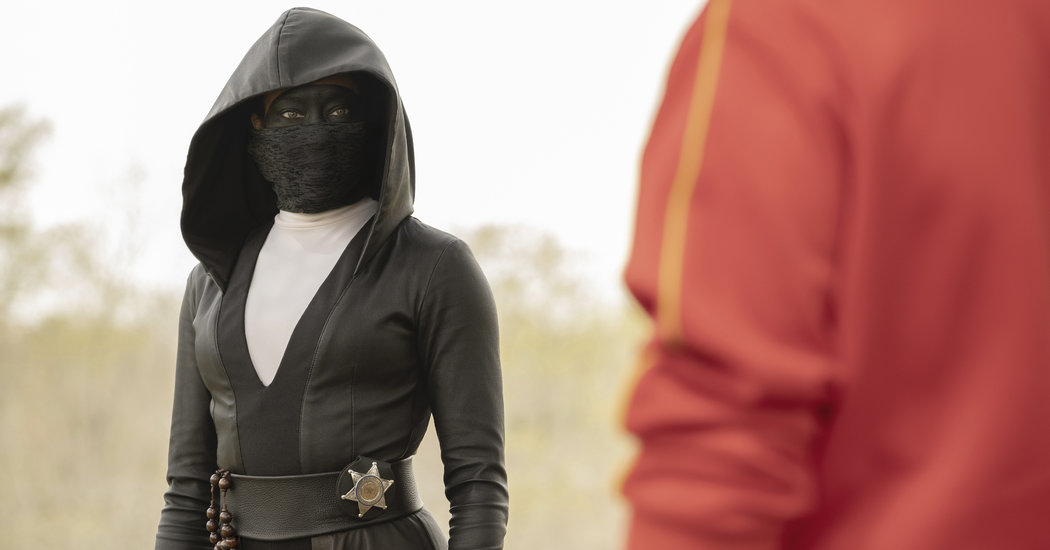Lindelofs superpowers get put to full use here: the disorienting cold open, the clever and poignant twist, the pop-culture hyperliteracy. His world is like a superhero Leftovers, in which characters are left to muddle ahead after staggering events. (Dr. Manhattan has decamped to Mars, meaning, essentially, that people know that God is real and that he no longer cares.)
Some of the most delightful moments are the droll, creepy interludes with the dotty Veidt (Jeremy Irons), isolated on a country estate where he experiments with and on his retainers. (The shows publicity has cheekily treated his identity as a spoiler. It is not.) Two-thirds into the nine-episode season, I still dont know how he fits in this new story. Nor do I care. His scenes do something more important, which is to convince you that this is a mystifying world you want to spend time in.
But that hour (the last screened for critics) is a wallop, synthesizing past and alt-present in a stylistic tour de force. It reframes the mythology and symbolism of Moores Watchmen unsettlingly but not, I think, flippantly into racial commentary, in such a way that you might think that the original story was intended to grow into this all along.
Watchmen is a big, audacious swing. It asks, Which is more outlandish and dystopian: an America in which the Tulsa atrocity is being paid for and fought over nearly a century later? Or the one we live in, where it is barely remembered and taught?

Be the first to comment on "Review: ?Watchmen? Is an Audacious Rorschach Test – The New York Times"